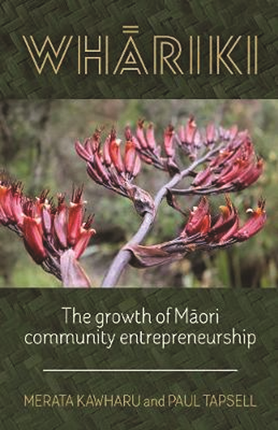Whāriki: The growth of Māori community entrepreneurship - Merata Kawharu and Paul Tapsell (2019)

The authors profile eight kin-based Māori business ventures, from Tai Tokerau to Ōtepoti, looking at business theory and day-to-day practice to analyse Māori commercial leadership and understand what drives Indigenous enterprise.
Publication details
M. Kawharu and Tapsell, P. Auckland: Oratia Books, 2019.
About the book
Understanding what drives enterprise within an indigenous cultural space is not widely understood in New Zealand. Whāriki reveals how kin-based business ventures created by Māori have promoted social, economic and environmental wellbeing from the whenua (land) up.
Its core is eight case studies — some arising from iwi-driven ideas, some ideas from marae-based whanau. These range from a bee school in Northland, ginseng growing in the King Country, to the rehabilitation of Māori prisoners in Dunedin and a web-engaged response to accessing tribal marae.
Always reaching into ancestral ties and lessons to provide guidance and foundation for their ideas, these businesses are wrapped in cultural approaches that engage kin communities in improving the wellbeing of their iwi, hapū and whānau. This book explores the successes, the failures, the learnings and the futures of these opportunities for Māori.
Further information
This book is part of the series marking the publication of Books of Mana (Otago University Press, 2025). It builds on the project Te Takarangi: Celebrating Māori publications and adds 30 titles to a selected list of 150 non-fiction books, led by Ngā Pae o te Māramatanga in collaboration with Royal Society Te Apārangi.
